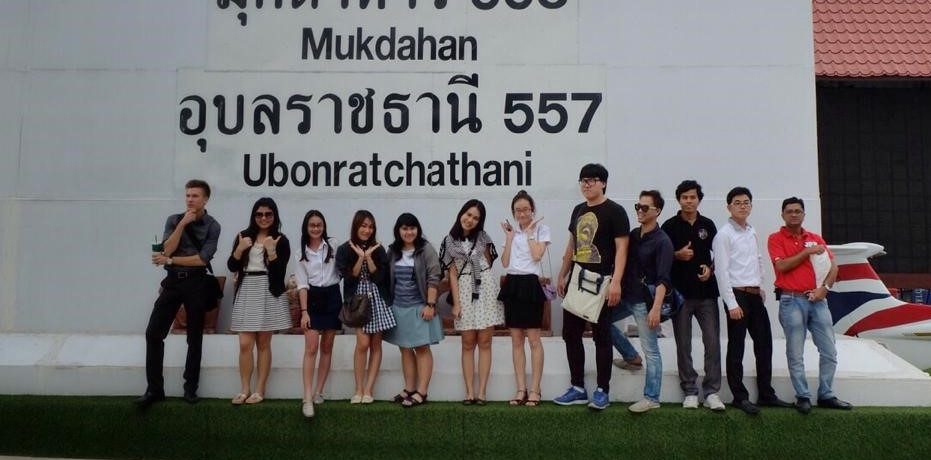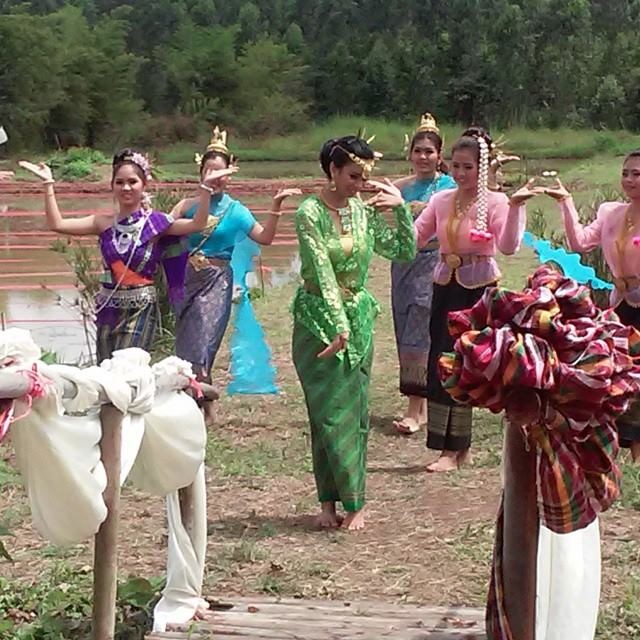Personal growth through new experiences and diverse ways of learning

I received a unique opportunity to do master studies at Burapha University in Thailand for six months, under the Erasmus Mundus Swap and Transfer project (SAT), which became a life-changing experience for me. During my student exchange, I concluded minor studies from a new academic discipline, which gave me a chance to learn new methodologies and therefore significantly expand my own academic understanding. I also received new wonderful friends and gained many educating experiences, just by openly observing all the new things that were suddenly around me.
We tend to focus on the measurable hard skills that one gains during international mobility, but I would say that the invisible soft skills that one learns are equally – or even more important, than the amount of completed credit points. These soft skills can include achieving a better cultural awareness and tolerance towards new things, understanding various kinds of cross-cultural communication styles and for example endurance in achieving what you wish. Beforehand I could not imagine how difficult it could be to for example buy a fresh, delicious mango or pineapple from a fruit seller, when you do not have a common language. However, people are people everywhere and by taking a bit of time, we can interact with each other, wherever we are. At the end, I learned the names of the fruits in Thai from the fruit seller, and I also learned how to peel and cut the fruit in a correct way. Another example of every-day learning is how I learned to count numbers, when I attended a gym class: the instructor constantly kept on counting numbers in Thai and just by passively listening to them while doing sports, I learned to count. This also taught me the correct pronunciation, which is very important, as Thai language has tones and one needs to pronounce every syllable with the right tone – otherwise you might say something totally different than what you meant. These are examples of just a couple of things, that I learned outside official academic scopes. Then comes all the new manners and body language, the various levels of politeness in communication and many, many other things. These skills of reading cultural codes and adjusting to changing situations are a very good asset in professional life.

Visiting Farm Chokchai to learn about agro-tourism in Thailand.
Finland and Thailand are very different, sometimes even opposite of each other in many aspects: climate, religion and spirituality, the development level of the society and cultural ways of behavior, such as individuality/collectivism and hierarchies linked to that. By being observant for these and not sticking into one’s own standards, the mobility gave me new perspectives in seeing how complex various matters are. It also helped me to look at my own country and its problems from an outsider point of view – and therefore to understand the societal problems better. I also started to wight my personal values and ethics in a new way. I learned to pay more attention to how integrity, sustainability and transparency support the implementation of many good values, and how only by doing so we can make the world a more just and stable place for us all. This does not mean that we need to set only one standard on how to do something but we also need to better respect the standards and perspectives of others – if they are implemented in a sustainable and ethical way.

University orietation trip to central Thailand
In addition to learning some of the deeper aspects of international mobility and cooperation, I also personally experienced several things, that I will definitely remember for the rest of my life. These moments include:
- Participating in university rice planting competition.
- Waking up every morning, when the neighbour’s rooster starts the morning concert.
- Running by the beach during monsoon season, when the pouring rain and mighty thunder starts.
- Eating so spicy food that it makes you cry and you do not know if you will survive alive.
- Sharing dinner and laughing together with your new warm-hearted friends and student peers.

Traditional Thai dance show next to the rice fields before the rice planting competition starts.
If you are hesitating whether to participate in an international mobility or not, I warmly recommend you to map the different options and if there is even a slightly interesting opportunity, take the leap and go for it! You might experience a huge cultural shock, but afterwards you will notice how much you grew personally.

Thumbs up for international cooperation from a Finn, a Bangladeshi and a Cambodian
Ilkka Häyrinen